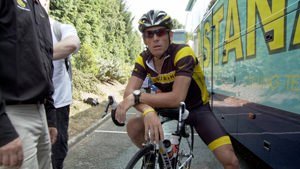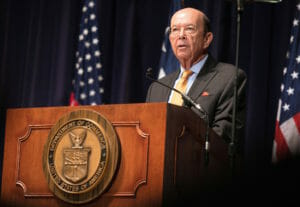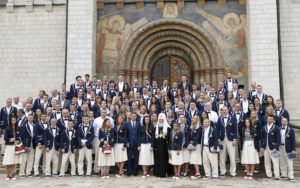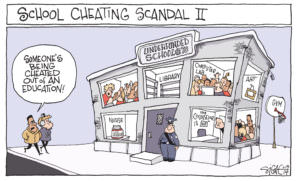Much Ado About Lance’s Lie
Alex Gibney's excellent documentary probes the moral outrage over cheating in a minor sport.
Lance Armstrong is a handsome, relentlessly articulate and mostly charming figure. A cancer survivor, the cyclist won the Tour de France seven times. He says that he loves to win, but mostly he hates to lose, which as we all know — even if we choose not to see “The Armstrong Lie” — he rarely did when he was at the top of his form. He was also a man who doped all of his racing life, as Alex Gibney’s excellent documentary makes clear. That means that all of his public life, he lived on the edge of legality, not to mention morality.
The film’s only failure is that it does not address this question: It says repeatedly that everyone — and I mean everyone — at cycling’s top levels was on performance enhancing drugs (EPO, testosterone, human growth hormones, blood transfusions) for essentially all of their careers. You either took them routinely, or you could not hope to win. So in some perverse way, they were competing on a level playing field. That is to say, the cleverest drug addicts (of whom Our Lance was easily the class of the field) tended to be the winners. Another way of putting it is that perhaps, uniquely in the history of sports, a drug culture ruled competition — and everyone knew about it. This involved the racers in prodigies of lying, at which Armstrong, with his open face and manifest good nature, was the champion. Everyone wanted to believe him — and the stakes in that belief were not inconsequential. There was lots of money to be made in this sport (more, I’m sure, than you ever imagined), not to mention celebrity and the good opinion of that relatively small portion of sporting mankind that cares at least somewhat about how bicycle races come out.
But for the fact that Armstrong and his colleagues lived a lifetime of lies, which cannot be good for the soul, this drama seems to be more a comedy than a tragedy — except, perhaps, for the filmmaker. I’m guessing now, but it would seem to me Gibney went into this venture idealistically. Here was a minor (and God knows effortful sport) in which even cheating looks to be backbreaking work and where winning seems not worth the candle. Gibney signed on to make a heartwarming story about an athlete attempting a comeback after a few years away from the sport and then found there was — er — a little more to the story than he bargained for. There is more than a little of the disappointed lover in his treatment of this tale. He wants there to be a little corner of purity in American life and it eludes him.
Armstrong is now stripped of his medals and there is a good chance that in the customary American way of these things, the legal system will take back most if not all of his riches, which appear to be considerable. Eerily, that seems to be all right with him. No documentary can speak for the dark nights of a man or woman’s soul, but Lance Armstrong knows that within the corrupt context of cycling in his time, he won all those championships fair and square. Or, actually, fair and crooked. They really can’t take that away from him. He muses in the film about what people may think of this whole business 50 years from now, and smiling, good-natured, likable to the end, is content to let history be his judge.
Here, perhaps, there is a glimmer of hope. We are, after all, talking bike racing here. Do we really think that, down the corridors of time, anyone will care if people cheated at this weird and minor sport? I seriously doubt it. On the other hand, as a tale for our time, it does say something interesting about the general state of morality. It is not pretty. And I’ll bet almost anything that this incident is not isolated — in sports or anywhere else. In some way, it will live on in the annals of minor, but instructive, infamy. It’s not quite the Black Sox Scandal, but it is something to chew on when you’re in the mood to moralize.
Your support matters…Independent journalism is under threat and overshadowed by heavily funded mainstream media.
You can help level the playing field. Become a member.
Your tax-deductible contribution keeps us digging beneath the headlines to give you thought-provoking, investigative reporting and analysis that unearths what's really happening- without compromise.
Give today to support our courageous, independent journalists.





You need to be a supporter to comment.
There are currently no responses to this article.
Be the first to respond.